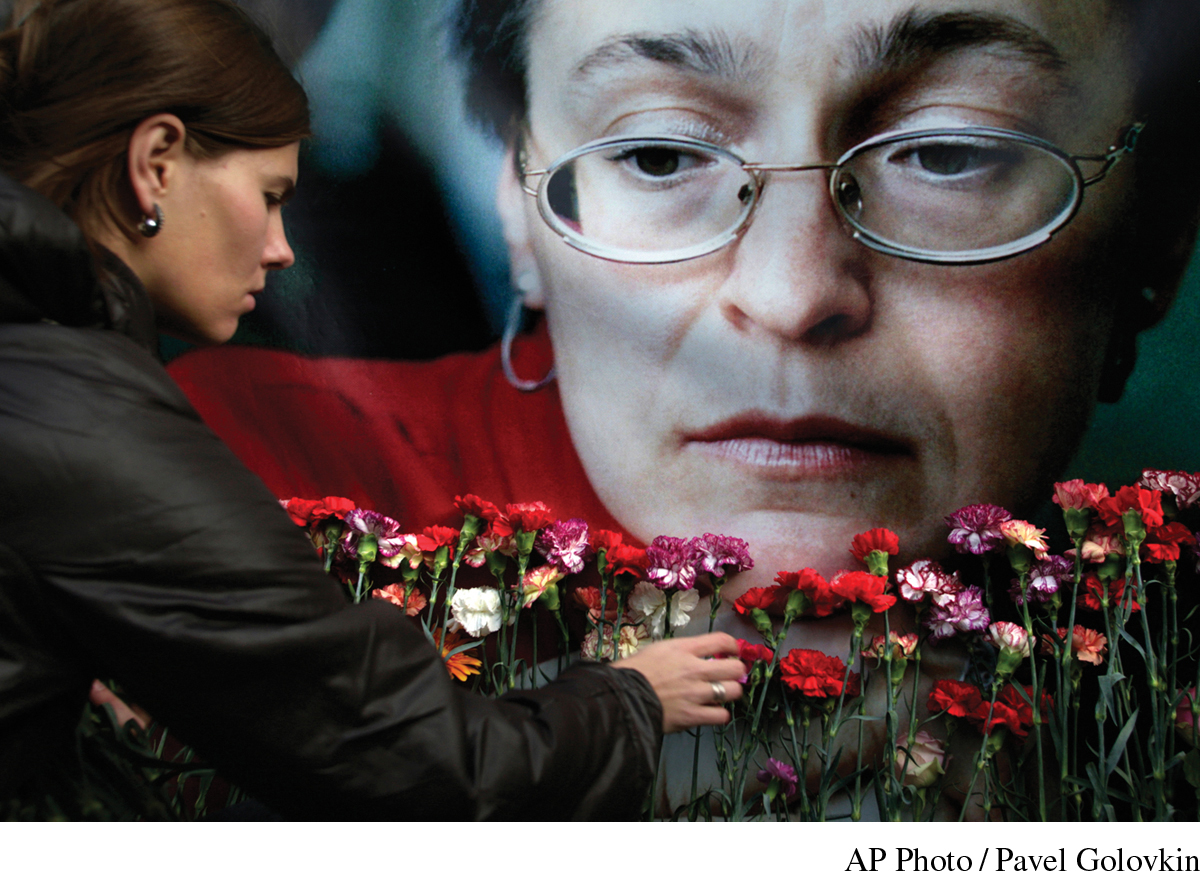International Politics and the New Russia
International Politics and the New Russia
Although Gorbachev had pulled the Soviet Union out of its disastrous war with Afghanistan, his successors opened another war to prevent the secession of oil-rich Chechnya and to provide a nationalist rallying cry during the difficult transition. For decades, Chechens had been integrated into the Soviet bureaucracy and military, but in the fall of 1991, the National Congress of the Chechen People took over the government of the region from the USSR to gain the same kind of independence achieved by other former Soviet states. In June 1992, Chechen rebels got control of massive numbers of Russian weapons.

In December 1994, the Russian government invaded. An official defended the war: “We now need a small victorious war . . . [to] raise the President’s [Yeltsin’s] rating.” Chechnya’s capital city of Grozny was pounded to bits. Casualties mounted not only among Chechen civilians but also among Russians. In 2002, Chechen loyalists took hundreds of hostages in a Moscow theater; Chechen suicide bombers blew up airplanes, buses, and apartment buildings as Putin pursued the Chechen war into the twenty-first century.
REVIEW QUESTION What were the major issues facing the former Soviet bloc in the 1990s and early 2000s?
Putin expanded Russian influence in Ukraine, Belarus, India, and China as well by taking advantage of the politics of energy. Russia had the commodities—especially oil and gas—needed to sustain the growth of emerging industries around the world. The sale of commodities made Russia once again a real player in global politics—now because of its economic strength. Democratic values, however, were not put into practice. Critics of the government were mercilessly assassinated, and newspapers and broadcast media were closed down. In 2014, when Ukraine made gestures toward the European Union and away from Russia, Putin annexed Crimea, part of Ukraine, and fortified pro-Russian forces in the country. Putin’s popularity remained steady as the Russian government used its new wealth to refurbish cities and everyday life grew easier. Putin served as prime minister between 2008 and 2012, and amid claims of dishonest elections, he was returned to the presidency for a third term in 2012.